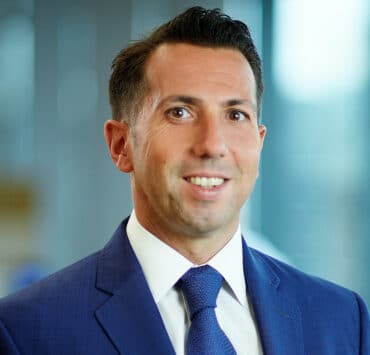|
Getting your Trinity Audio player ready... |
A popular business maxim maintains that you “don’t change horses in midstream.” But Josh Griggs, executive vice president of talent and operations and CFO at Teach For America (TFA), did just that—and quite successfully.
“I was pursuing a degree in economics and international studies at Yale University when I started volunteering at schools in the New Haven area,” he says. Initially tutoring a single student one hour weekly, he was soon helping in kindergarten classrooms several days a week.
“I discovered that I had a passion for teaching, especially in low-income communities,” he says. “I even applied to be an intern in the public school system, so I could help link Yale’s resources with the system’s needs.”
After graduation, Griggs enrolled in the TFA corps program and was assigned to teach third and fourth grade in the Bronx. During the second half of his two-year commitment, Griggs was chair of the fourth-grade program. He worked with a great team of teachers to develop a bridge-to-middle-school program and conducted workshops with school principals in New York.
When his two-year term ended, Griggs decided to join staff with TFA. “At first, I thought I’d use that time to sort out my options for grad school and settle on a career direction. But the staff at TFA really surprised me with their abilities and commitment to the mission,” he says. “I realized it was a place where I could learn and grow while making a real impact in the community.”
“I realized [TFA] was a place where I could learn and grow while making a real impact in the community.”
Josh Griggs
He joined the organization full time in 2005 (the same year he received his master’s degree in education from Fordham University) as director of recruitment, advanced through several positions in the admissions department, and was named to his current position in 2015.
“My time leading admissions gave me the chance to witness the criticality of partnerships and operational dimensions,” he says, “and so I became familiar with the whole enterprise, as well as the policies, processes, and systems that made it work.”
Currently, Griggs ensures that TFA has the proper (and sufficient) capabilities, policies, services, and systems to be simultaneously dynamic and stable.
That may sound contradictory, but it’s not. “Our ten-year goal is to double the number of students that reach key educational milestones indicating they are on a path to economic mobility and a life with more freedom and choices,” Griggs says.
To do so, “TFA must be able not only to quickly respond to opportunities as they arise,” he adds, “but also to consistently sustain the program and organization over those ten years.”
It’s a daunting set of challenges: organizing for the future, proper staffing flow, technology upgrades, real estate initiatives, and creating a stable backbone for the organization.
“We will need our talented and inspired people to work cross-functionally,” Griggs says. “And we need to think differently. The ways we did things for thirty years won’t work now.”
TFA’s use of real estate is an example. Pre-pandemic, office space agreements were a mix of five-year and annual leases. But after work-at-home became the norm, Griggs notes, the organization stopped renewing the annual leases and is now planning to take a totally different approach to workplace and office strategy going forward.
Griggs sees himself as a guide for others, not necessarily the typical leader. “The idea of servant leadership really resonates with me,” he says. “This position is not about me but about how I can be helpful to TFA’s staff, corps members, and alumni.” It’s why he takes a “walk the floor” approach, offering accessibility, prompt communication, and a willingness to collaborate.
Griggs follows the “think big but start small” philosophy espoused in Lean Impact by Ann Mei Chang. “We want to maximize our social impact over time,” he says, “so we need to innovate but in the proper ways.”
“We need to think differently. The ways we did things for thirty years won’t work now.”
Josh Griggs
He mentions fundraising as an example. “While we’re examining our current sources, we may need to look at others,” he explains. “Who should be responsible for that? How do we decide where to apply those funds, in order to have the greatest impact? How does it fit with our overall mission?”
The “start small” aspect is evident in a recent pilot program. “We launched it with ten of our regions. Instead of relying on ten individual fundraising teams, we’ve consolidated them into three regional hubs, which will also work with the national TFA organization,” Griggs says. “We know what experience we want our donors to have and what results we hope to see, so we’ll collect data to understand whether it’s actually working. Then we can adjust or expand the approach as needed.”
Griggs’s passion for education hasn’t dimmed, and it aligns well with TFA’s overall mission. “The activities that we engage in, the programs we run, our partnerships with school districts and community leaders—at the end of a workday, I’m proud of how I’ve spent my time and am excited to tackle the challenges and opportunities ahead,” he says.
“The Plexus Groupe has collaborated with Josh Griggs and his team at Teach For America for over ten years. While advising TFA and Josh on their corporate insurance programs, we’ve built a successful, thriving partnership. Josh is professional, strategic, and he always makes decisions that are fiscally sound and supportive of TFA staff and culture.” —Bill Lacey, Partner, The Plexus Groupe

